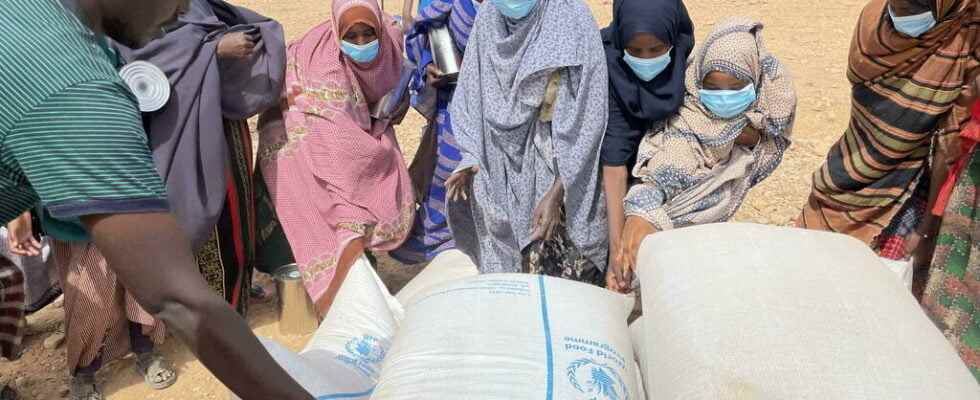In Ethiopia, the conflict continues, the Tigrayan rebels have progressed in the Afar region in recent weeks. At the same time, diplomatic initiatives are multiplying to put an end to the fighting. European Union Special Envoy for the Horn of Africa, Annette Weber, was on a trip to Addis Ababa this week where she held talks with Prime Minister Abiy Ahmed and several government officials.
Peace initiatives continue in Ethiopia to end the civil war as the fighting continues and has even intensified these last weeks. After that of the African Union and the envoy for the Horn of Africa, Olusegun Obasanjo, it was the special envoy of the European Union who went to the Ethiopian capital where she notably met the head of government Abiy Ahmed. Upon her return to Nairobi, she spoke at a press briefing on Friday February 11. Annette Weber said she sees positive signals for the evolution of the Ethiopian crisis, even if everything is not done yet, reports our correspondent in Nairobi, Albane Thirouard.
” We recognize that there have been many changes by the Ethiopian government in recent weeks, including the release of prisoners, the order given to federal troops and the FANO militia not to advance further into Tigray, the drop in hate speech, visas granted to humanitarian workers. The situation has improved but all is not certain, and to speak of peace, I am certainly optimistic but I remain cautious, she said. The war and the fragmentation of the country have reached such a level that it may not be enough to have an agreement between the TPLF, the rebel forces of Tigray, and the federal government. Ethnic militias in the Afar and Amhara regions are not very enthusiastic about pausing the war, keeping quiet, because they feel they do not have enough guarantees that the TPLF and the rebel forces of the Tigré will not advance. At the same time, I have the feeling that the TPLF is sincere when it says it wants an Ethiopian solution to the conflict and not independence. Now, what might this solution look like? This is precisely what must be discussed, not only between the two camps but with all the stakeholders. However, before arriving at these discussions, a ceasefire is essential. »
The aid operations greatly reduced or suspended »
In fifteen months, the conflict between Ethiopian government forces and Tigray rebels has left thousands dead and, according to the United Nations, has driven hundreds of thousands of people to the brink of starvation.
The European Union envoy also reiterated the need to see free access to the Tigray region for humanitarian convoys. The United Nations humanitarian agency Ocha also denounced aid deliveries on Thursday ” widely reduced or suspended, including essential distributions of food, water, health services “, writes the United Nations Office for the Coordination of Humanitarian Affairs and explained to face a lack of fuel. The agency points out that no fuel deliveries have been authorized in the region since August 2, 2021, with the exception of two trucks in November, while a cash crisis has left local nonprofits deep in debt and struggling to pay wages since last June.
